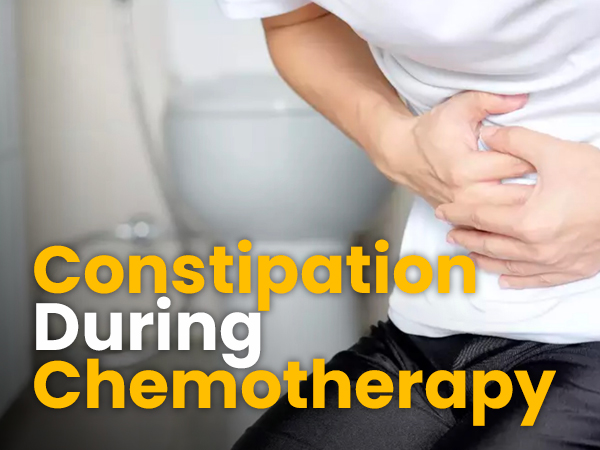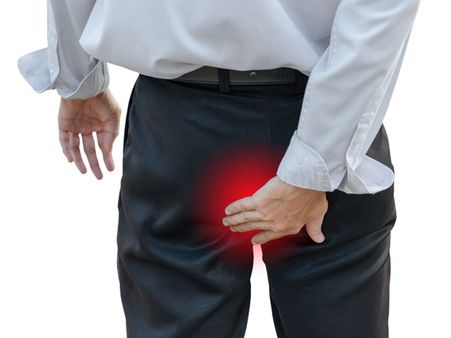Just In
- 27 min ago

- 8 hrs ago

- 8 hrs ago

- 12 hrs ago

Don't Miss
- Movies
 Bigg Boss Malayalam 6 Elimination Update: Jaanmoni Gets Evicted From Mohanlal’s Show? Here’s What We Know
Bigg Boss Malayalam 6 Elimination Update: Jaanmoni Gets Evicted From Mohanlal’s Show? Here’s What We Know - Sports
 WCL: How to buy Tickets for World Championship of Legends?
WCL: How to buy Tickets for World Championship of Legends? - Finance
 625% Dividend, 1:10 Split, 3 Bonus; FMCG ITC Makes Big Acquisition Announcement; Stock Target Prices In April
625% Dividend, 1:10 Split, 3 Bonus; FMCG ITC Makes Big Acquisition Announcement; Stock Target Prices In April - News
 BJP Chief Nadda Accuses Congress And Left Of Ideological Bankruptcy
BJP Chief Nadda Accuses Congress And Left Of Ideological Bankruptcy - Education
 Exam Pressure Does Not Exist; Studying Punctually is Crucial; Says Aditi, the PSEB 2024 Topper
Exam Pressure Does Not Exist; Studying Punctually is Crucial; Says Aditi, the PSEB 2024 Topper - Automobiles
 Suzuki Swift Hatchback Scores 4 Star Safety Rating At JNCAP – ADAS, New Engine & More
Suzuki Swift Hatchback Scores 4 Star Safety Rating At JNCAP – ADAS, New Engine & More - Technology
 Dell Introduces AI-Powered Laptops and Mobile Workstations for Enterprises in India
Dell Introduces AI-Powered Laptops and Mobile Workstations for Enterprises in India - Travel
 Journey From Delhi To Ooty: Top Transport Options And Attractions
Journey From Delhi To Ooty: Top Transport Options And Attractions
What Causes Constipation During Chemotherapy? Everything You Need To Know
Chemotherapy, also called chemo is a type of cancer treatment that uses one or more anti-cancer drugs to destroy cancer cells from dividing uncontrollably [1].
Chemotherapy drugs are used to treat many types of cancers. Though chemotherapy is considered effective for many types of cancers, it also causes common side effects like nausea, constipation, diarrhoea, hair loss, fatigue, loss of appetite, mouth sores and fever.
In this article, we'll talk about one of the common side effects of chemotherapy: constipation, and its causes, symptoms and how it can be managed.

What Causes Constipation During Chemotherapy?
Constipation is characterised by infrequent bowel movements. It occurs when stool becomes hard and difficult to pass. Constipation is a common side effect of chemotherapy.
Several factors can cause constipation during chemotherapy and these include: [2] [3]
- Chemotherapy drugs
- Decreased physical activity
- Not taking enough bed rest
- Pain medications
- Drugs to treat vomiting and nausea
- Dehydration
- Increased calcium levels in the blood (hypercalcemia)
- Changes in eating habits
Top 9 Fruits For Constipation Relief

Symptoms Of Constipation During Chemotherapy
The common signs and symptoms of constipation include abdominal pain, rectal tearing, sense of feeling full in the abdomen and haven't had a bowel movement for two or three days [4].

Complications Of Constipation During Chemotherapy
Constipation if left untreated can lead to severe complications: [5] [6]
- Rectal tearing
- Piles (haemorrhoids)
- Faecal impaction( a condition in which hard, dry stool gets stuck in the rectum that the body can't push out)
- Confusion
- Severe nausea with or without vomiting.


When To See A Doctor
Cancer patients who are undergoing chemotherapy should maintain regular bowel movements. However, you should consult your oncologist immediately if you haven't had a bowel movement in two days.

Diagnosis Of Constipation During Chemotherapy
The diagnosis of constipation during chemotherapy can be evaluated based on the symptoms alone or in combination with other medications prescribed during cancer treatment that may have increased the risk of constipation.


How To Manage Constipation During Chemotherapy?
Constipation can be managed or prevented by implementing some changes in your lifestyle.
- Eat more fibre-rich foods
- Drink plenty of water
- Exercise daily
- Medications
- Bulk-forming laxatives - These medications work by drawing water back into the intestine to reduce the hardness of the stool and lower the transit time (the amount of time the stool stays in the colon). Although, bulk-forming laxatives are recommended as the first step for treating mild constipation, however, it can take up to 72 hours to show the effects and therefore it's not ideal for the management of constipation in cancer patients. Methylcellulose, psyllium, and polycarbophil are usually used for treating constipation during chemotherapy.
- Osmotic laxatives - Osmotic laxatives such as lactulose, sorbitol, polyethylene glycol compounds, and saline laxatives (magnesium hydroxide) work by retaining fluid in the gastrointestinal tract. This makes the stool easier to pass.
- Emollient (stool softener laxatives) - Emollient laxatives, also known as stool softeners soften the stool by mixing water and fat in the stool, thereby allowing the stool to pass more easily through the gastrointestinal tract.
- Stimulant laxatives - Stimulant laxatives such as diphenylmethane derivatives, senna, cascara, ricinoleic acid (castor oil), and surface-acting agents directly stimulate the nerves around the colon, which allows the stool to pass easily through the gastrointestinal tract. Stimulant laxatives are only used for short-term and overuse of it can cause dehydration.
- Lubricant laxatives - Lubricant laxative like liquid paraffin, also known as mineral oil is used to treat constipation during chemotherapy. It works by bringing water into the stool to soften and lubricate it to make it easier to pass out of the body.
If you are experiencing mild symptoms of constipation, increase the intake of fibre in your diet to help regulate your bowel movements. A study published in the journal Cancer Nursing found that leukaemia patients who were undergoing chemotherapy and having constipation as a side effect were fed sweet potatoes, which resulted in improvement of bowel movements and prevented constipation [7] [8].
Eat fibre-rich foods such as fruits, vegetables, brown rice, oats, quinoa, beans, nuts and chia seeds. And consult your doctor about how much fibre you should be consuming daily.
Drinking plenty of water keeps your stool soft and makes it easier to pass. Generally, it is recommended to drink at least eight glasses of water per day to keep your body hydrated. Avoid drinking caffeinated beverages as they can cause dehydration, which could worsen constipation [9].
Exercise can help in regulating your bowel movements. Take short, regular walks and make sure that you don't overdo it. However, you should talk to your doctor before starting any exercise [10].
Certain laxative medications can aid in the treatment of constipation during chemotherapy. [11]
Common FAQs
Q. What helps with constipation during chemo?
A. Increasing your fibre intake, drinking plenty of water, doing some simple exercises and having medications like laxatives and stool softeners can help with constipation during chemotherapy.
Q. Does chemo affect bowel movements?
A. Yes, it can cause constipation and diarrhoea.
Q. What medications help with constipation during chemo?
A. Bulk-forming laxatives, osmotic laxatives, emollient laxatives, stimulant laxatives and lubricant laxatives are the medications used to help treat constipation during chemo.
-
 wellnessIs It Safe To Take Laxatives Everyday? Are Laxatives Healthy For Weight Loss?
wellnessIs It Safe To Take Laxatives Everyday? Are Laxatives Healthy For Weight Loss? -
 nutrition5 Reasons To Drink Aloe Vera Juice Every Day; Recipe And How To Extract Aloe Vera Gel?
nutrition5 Reasons To Drink Aloe Vera Juice Every Day; Recipe And How To Extract Aloe Vera Gel? -
 disorders cureInternational Stress Awareness Day: What Is Stress Constipation? How To Manage It
disorders cureInternational Stress Awareness Day: What Is Stress Constipation? How To Manage It -
 wellnessDelhi Hospital Successfully Treats Chronic Constipation Using Biofeedback Therapy
wellnessDelhi Hospital Successfully Treats Chronic Constipation Using Biofeedback Therapy -
 wellness10 Things That Happen To Your Body And Mind When You Don't Eat Enough Food
wellness10 Things That Happen To Your Body And Mind When You Don't Eat Enough Food -
 nutrition17 Amazing Health Benefits Of Rose Apple (Java Apple)
nutrition17 Amazing Health Benefits Of Rose Apple (Java Apple) -
 wellness7 Herbal Teas That Can Help Ease Constipation
wellness7 Herbal Teas That Can Help Ease Constipation -
 prenatalWhat Causes Constipation During Pregnancy And How Can It Be Treated?
prenatalWhat Causes Constipation During Pregnancy And How Can It Be Treated? -
 wellnessEat These Foods To Get Rid Of Constipation Easily
wellnessEat These Foods To Get Rid Of Constipation Easily -
 nutritionIs Orange Juice Good For Constipation? Everything You Need To Know
nutritionIs Orange Juice Good For Constipation? Everything You Need To Know -
 wellness11 Best Juices For Colon Cleansing
wellness11 Best Juices For Colon Cleansing -
 wellnessTop 10 Vegetables To Relieve Constipation
wellnessTop 10 Vegetables To Relieve Constipation


 Click it and Unblock the Notifications
Click it and Unblock the Notifications



